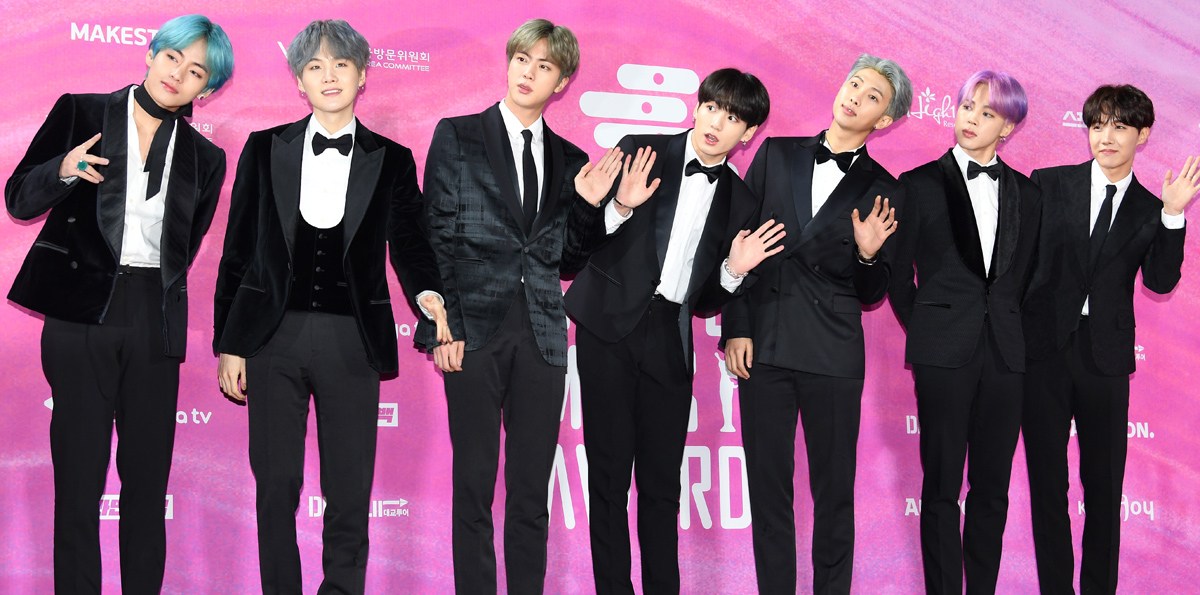Recently, I deleted TikTok from my phone (again) and restricted the visibility of some accounts on my Instagram page. Being on social media became tiring, instead of feeling entertained, I was overwhelmed. And it has a lot to do with the K-pop community, that I have been a part of for the last few years. My little break allowed me to reflect on the fandom space and I have a few thoughts that I decided to share in this week’s blog post.

Drowning in Content
One of the aspects most tiring for me, was the massive amount of content. The way the K-pop industry is organized blurs the boundaries between professional and private, and the constant presence of cameras around the idols, allows every single interaction to become media content. Things shown in the feed of a fan can therefore range from company-curated content related to the official activities of groups and idols, but also fan-made edits referring to the idol’s behavior, character, or off-stage life. There were over 10 music releases by the BTS members this year, all with their own promotion schedules and content. On top of that, BTS’ company, Hybe Entertainment, released eight photographic albums, a book on the history of the group, and two documentaries on the members’ solo projects. The official, company-curated content is therefore substantial by itself. A fan can easily structure their life entirely around schedules, fan activities, and promotions of their favorite group.
Fandom Culture
However, most of the content one consumes within the fandom space is not created by companies, but by fans. As I stated before, there is plenty of material to work with on the Internet, as the idols are filmed almost notoriously when they are in public. And the boundaries between public and private in the K-pop industry tend to be quite blurry. Digital technologies allow idols and fans to be in seemingly direct and unmediated contact. And it is not just about the fans living in a parasocial relationship with their idols, as idols are also influenced by this type of connection. The best example is Jungkook of BTS, who broadcasted regularly in the last few months, and with millions of people watching, was doing laundry, cooking, or even sleeping. Everyone can participate in creating content, you just need some basic editing skills. Idols can be inspirations for some great and creative endeavors. However, it also tends to lack any sort of critical thinking. At some point, some inside jokes are repeated so many times, that they become obsolete. The idols are treated as though they can do no wrong and idealized to the point of absurdity.

BTS at the White House on May 31, 2022
Another thing about fan culture is that you must keep up. You have been offline for the last week because you went for a trip without an Internet connection? Well, you just missed an entire era. Life as we know it will never be the same, and you were not here for that. FOMO is a real thing in fandom, it is easy to feel as though you are not participating enough (or even get guilt-tripped by some overly invested fan). The participation (or devotion) can also be judged by the amount of merch one owns. This point brings me to the ickiest part of the fan love. Because within capitalism, it is always transactional. It does not make the emotions involved any less real, however, the affect is managed by the companies, and the end goal is always to make as much money as possible.
The Community
Nevertheless, the digital community created through fandom is extremely powerful and can use this power for the greater good. The members support each other by organizing fundraisers, sometimes for everyday necessities, such as rent or medical bills, or for fulfilling unachievable for many dreams, like going to a concert of their favorite groups. Through the common framework of idols, fans exchange ideas, create art, and write books. Others use K-pop to educate and talk about social issues, such as gender, sexuality, capitalism, or racism. As K-pop is an industry of fantasy, for every fan the idols will mean something a little bit different. As fans, we can use the idols to project our desires or fears. The groups, and by extension, the fandom, can therefore become safe spaces. We are invited to indulge in a fantasy, without hurting anyone.
The fandom can become one’s place of refuge from a scary and overwhelming reality. Many members of the BTS’ fandom, ARMY, spoke up about how BTS finds you when you most need them, and how being a fan made them stronger, braver, and more loving people. And I believe that to be true. In fandom, one can find joy, community, and love, that one might be lacking in outside life. Through fandom one can grow, transform, and express themselves. At the end of the day, it is not tangible. It should serve you, and not the other way around.


Recent Comments